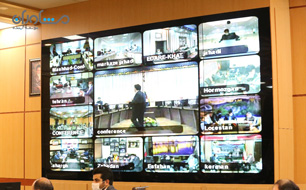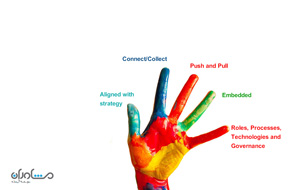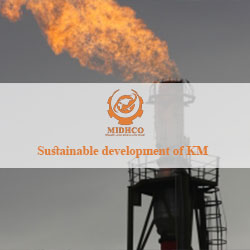What is the difference between knowledge management and content management?
Learn More
Content management (CMS) and knowledge management (KMS) systems deal with creating, managing, and disseminating information. The two systems' key features seem similar at first glance, but there are fundamental differences between the CMS and the KMS, especially in how information flows through the processes associated with its development and dissemination. Knowing these differences is an excellent guide to choose the right solution that meets the organization's needs.
The difference between content management and knowledge management becomes more pronounced when facing challenges and searching for the right information management tools. Content management is a comprehensive source of information that shares knowledge management goals to methodically manage information and, according to its competitive advantages, improves productivity, increases knowledge efficiency.

Content management believes that users can access the comprehensive source of information we mentioned at the beginning to access the documents they need, but knowledge management helps people identify the information they need and suggests ways to achieve the knowledge they need which Helps users. Content management involves creating, storing, and organizing information, while knowledge management focuses on how information is shared or transmitted to users according to their needs. In addition to what we reviewed together, content management does not provide categorized information with search capabilities, but knowledge management focuses on categorized information such as web pages, community websites, or other systems.
In short, we live in a world where information is created and used faster than ever before. Today, knowledge transfer channels play a vital role in businesses and must promptly provide targeted and essential information in the business so that customers and employers receive fast and efficient services.
Given the issues we have explored, the information needed to manage projects, websites, and documents need a developer to create and an IT team to maintain it; As a result, creating an easy-to-use feature for users and retrieving problem information related to knowledge topics under the KMS software platform can be valuable.
The difference between content management and knowledge management becomes more pronounced when facing challenges and searching for the right information management tools. Content management is a comprehensive source of information that shares knowledge management goals to methodically manage information and, according to its competitive advantages, improves productivity, increases knowledge efficiency.

Gain knowledge compared to its creation
Acquiring fundamental business knowledge should be considered an activity in day-to-day work and should not be part of a separate process. Obtaining this information will only be successful if content creation is part of the business process, and its complete integration with existing systems is easy. For example, a customer should be able to offer a new solution through the CRM environment quickly. Likewise, information on e-topics and community posts can be systematically collected to generate new knowledge.Manage or maintain the current path of knowledge transfer
In an environment that emphasizes knowledge acquisition, the ability to transfer information to the right person or team becomes more important, and the role of information management doubles. As a result, it is understood that the advantage of knowledge management over content management is the proper use of information.Content management believes that users can access the comprehensive source of information we mentioned at the beginning to access the documents they need, but knowledge management helps people identify the information they need and suggests ways to achieve the knowledge they need which Helps users. Content management involves creating, storing, and organizing information, while knowledge management focuses on how information is shared or transmitted to users according to their needs. In addition to what we reviewed together, content management does not provide categorized information with search capabilities, but knowledge management focuses on categorized information such as web pages, community websites, or other systems.
In short, we live in a world where information is created and used faster than ever before. Today, knowledge transfer channels play a vital role in businesses and must promptly provide targeted and essential information in the business so that customers and employers receive fast and efficient services.
Given the issues we have explored, the information needed to manage projects, websites, and documents need a developer to create and an IT team to maintain it; As a result, creating an easy-to-use feature for users and retrieving problem information related to knowledge topics under the KMS software platform can be valuable.

















